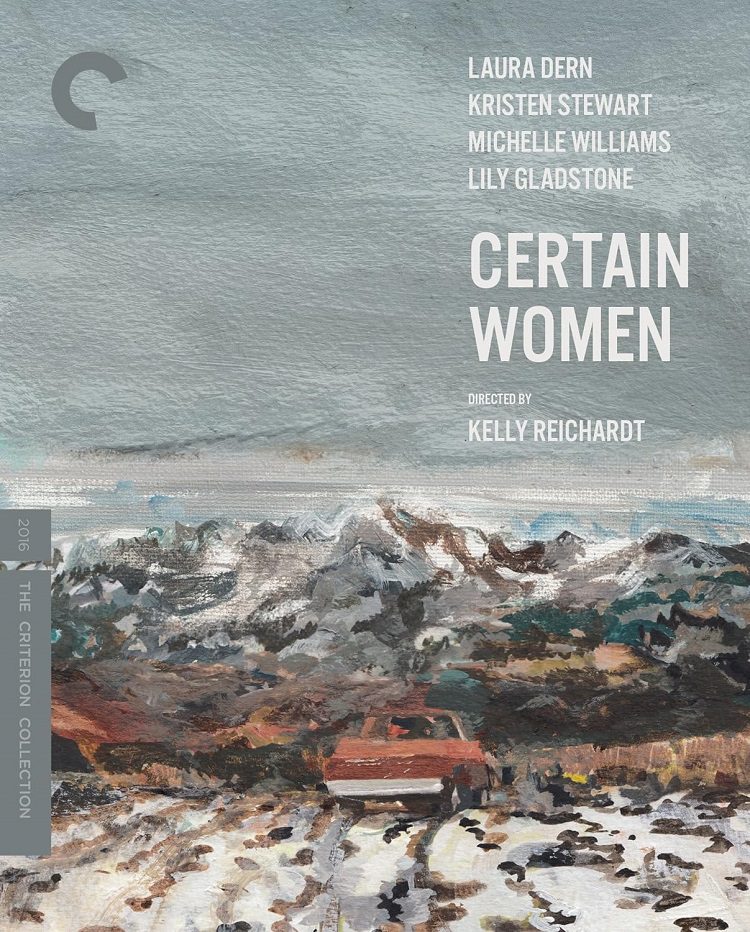
When it comes to filmmaking, from the past to the present, it is always men at the forefront. However, and rightly so, women have been very important and essential to cinematic storytelling. And then there is the matter of American independent cinema, which has been quite the match for female filmmakers, and director Kelly Reichardt is one of the most astute and easily influential of the “Female New Wave.” With her 2016 miracle of a movie, Certain Women, she continues to make it crystal clear that her unique approach to craft and substance sublimely haunts film.
Adapted from three short stories by Maile Meloy and consisting of personal but interconnecting episodes, the film evocatively captures the sense of desire and private struggle that invades the lives of Laura (Laura Dean), a lawyer forced to deal with a very troubled client; Gina (Michelle Williams), a wife and mother whose plans of building her dream home reveal cracks and fissures in her marriage; and Elizabeth (Kristen Stewart), a night-school teacher who develops an unexpected bond with a lonely ranch hand (Lily Gladstone) whose desire for social connection surfaces the entire film. It’s with these complex and obviously flawed women that you realize how a certain landscapre, in this case Montana, can really open up the reality of complicated lives, even in the most capacious of circumstances.
Reichardt’s poetic eye for humanity is not the only reason why the film works on basically every level. Each of the actresses: Dern, Williams, and Stewart, bring their own remarkability and quality to their characters, revealing a part of themselves that feels all too real. However, as much as the three esteemed stars deliver career-best performances, the real standout of the film is Lily Gladstone, whose expressive face and overall demeanor really break the heart. Through her, you really get the essence of what the film is really about: life from the point-of-view of women. It’s just a mesmerizing performance.
While not much in the supplements department by Criterion’s standards, you still get much information about the production and overall film. There is a new interview with Reichardt where she discusses Meloy’s stories, leaving Oregon to shoot the film in Montana, the film’s sparse use of music, etc. There is a new interview with filmmaker and executive producer Todd Haynes as he explains his friendship and working relationship with Reichardt and talks about her style of directing. The last interview is with Meloy, who expresses her praise of the film and the reaction to being approached by Reichardt. There is also the original trailer and a new essay by critic Elia Taylor.
The slow burn of the film will probably put off some people, but that really shouldn’t take away from the impact because it is a truly amazing film by a truly amazing cinematic auteur. I’m so glad Reichardt has joined the Criterion Collection, and hope to see more of her brilliant films soon.